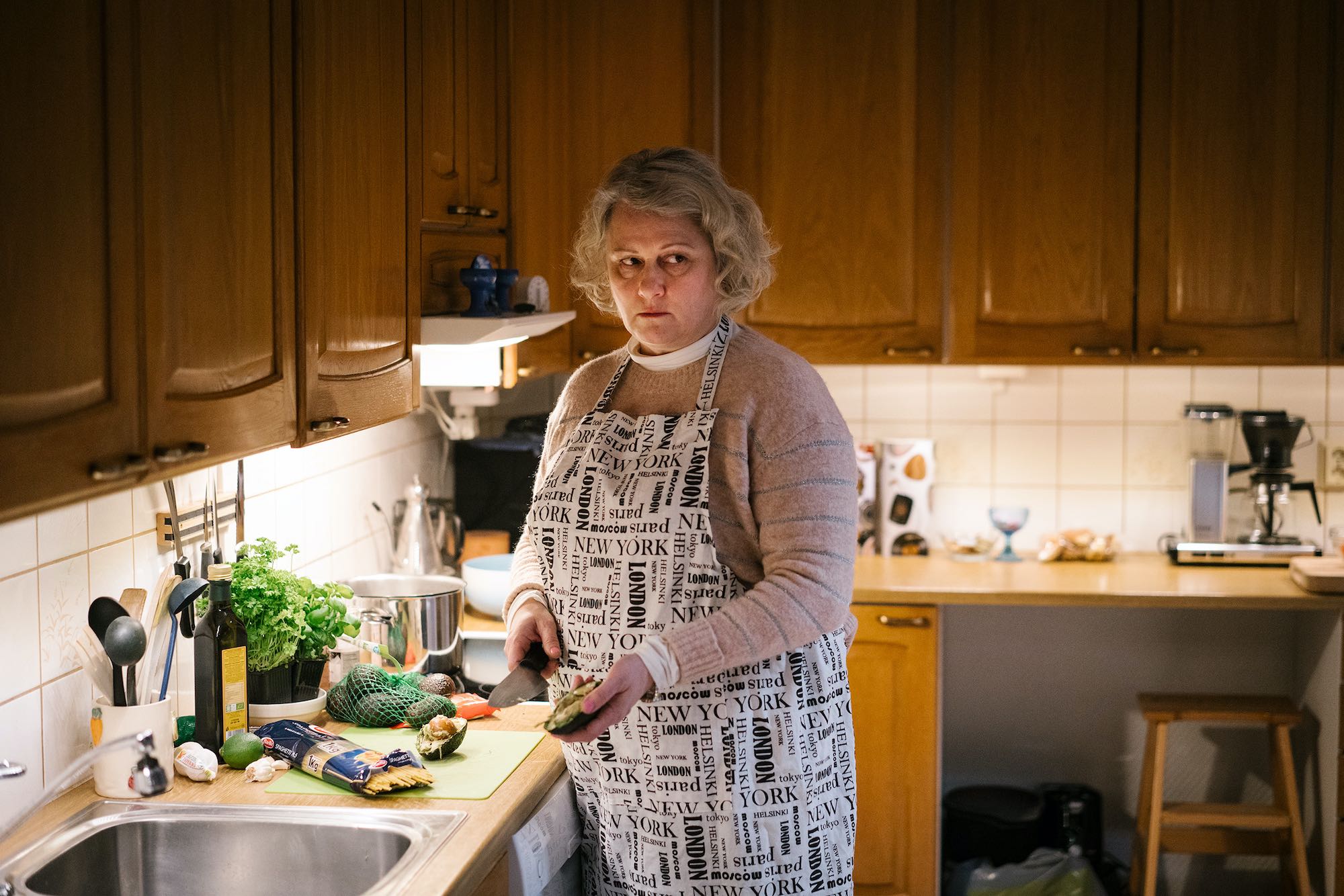There is a notion in society that as women get older they become invisible, feeling, as this Guardian article explains, “erased from a culture that equates youth and beauty with value”. As a 43yr-old male, I’m not in any kind of position to comment on that belief, in fact, the only way I can even hope to understand what that must feel like is through stories like Kirsikka Saari’s Super Comfort, which immerses you in the shoes of its 52-year-old protagonist Taina.
Featuring a narrative centred around a mother who just wants to make her family happy, Super Comfort is simple in plot, but surprisingly endearing and emotive. Following Taina as she prepares for the arrival of her son Eetu and his girlfriend, as we witness her fastidious cleaning and her efforts to strike up a conversation with her monosyllabic husband, we’re instantly given the impression of a woman who is largely overlooked by those around her. As the narrative unfolds and we soon begin to understand Taina isn’t going to get the one thing she wants – time with her family – you really begin to share her frustration and disappointment.
As her son’s visit is cut much shorter than she’d expected and with her husband continuing to dismiss her attempts to start any kind of discussion (“don’t you have anything to do?”, he asks as she idles at a doorway, trying to find out what he’s up to) Taina aims her frustration at the only person who will listen – the supermarket worker she phones to complain about some overripe avocados she purchased. With the call yielding unsatisfying results and her irritation threatening to consume her, she marches down to the store to return her mushy fruit but finds comfort in an unexpected encounter.

Super Comfort concludes with Taina finding comfort and relief from an unexpected source.
With Taina’s disappointing purchase proving the catalyst to unleash a little rage, and the resulting catharsis it allows, it’s hard not to draw the conclusion that Saari’s inclusion of this overmature fruit was a reference to her lead’s own predicament. It’s a clever plot device, but not one the short relies on. As I alluded to earlier, Super Comfort’s narrative development could easily be seen as uneventful, but the impact of the short relies more on the journey of its lead. As Taina’s enthusiasm and resolve is slowly chipped away during the 15-minute duration of the film, our bond with her character become stronger. You will her to take a stand, you want her to be heard and when someone finally pays her the attention she so richly deserves, it feels all so good. It’s almost like you’re there experiencing that massage with her.
Omnipresent throughout, as Super Comfort is very much a character study, the film’s success relies largely on the shoulders of its lead Tiina Pirhonen. With the camera never straying far from her side, her performance is beautiful in portraying in Taina’s essence. There’s a sprinkling of humour in her character, but it’s never enough to make her the butt of the joke. It really is impressive how much you care for her at the film’s lovely climax and though a lot of that is of course down to Saari’s subtle, but effective script, Pirhonen must also take her share of the credit for bringing her character to the screen so convincingly. As the camera settles on an extreme close-up at the end, she may only utter three simple words, but her face conveys all the emotion needed for Super Comfort to land its heartfelt impact. It makes for one of the most satisfying pay-offs I’ve seen in a short film for some time.
An award-winning screenwriter, Super Comfort was Saari’s third short film as director, she has since made another short titled Fat, which is based on Raisa Omaheimo’s monologue play of the same name.

 Rob Munday
Rob Munday